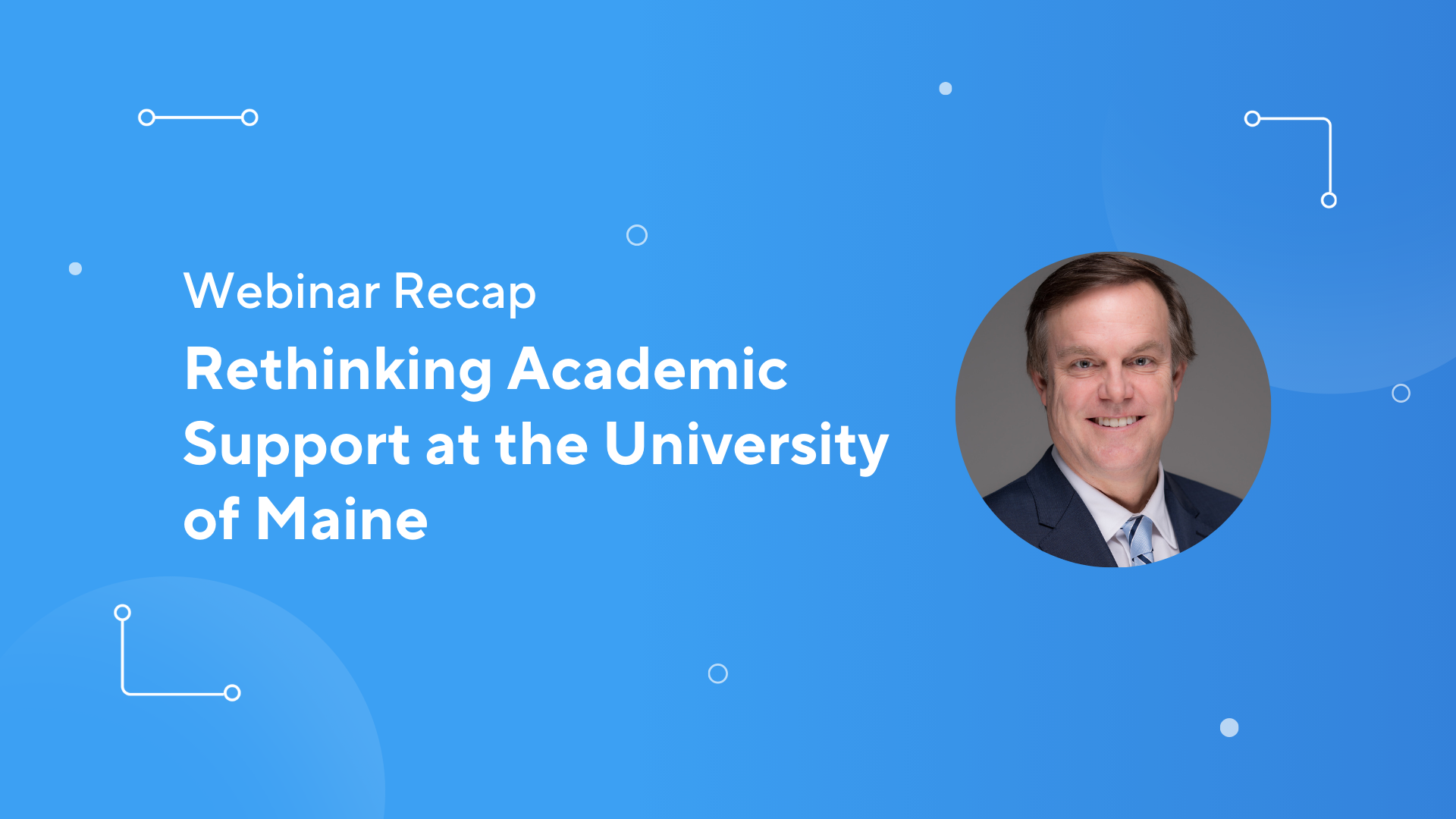At Knack, we’re always exploring new ways to help students succeed, but sometimes the best insights come from our partners. This week, we had the privilege of learning from Scott and his team at the University of Maine, where they've been rethinking academic support in ways that really got me thinking about the potential of peer learning.
Redefining Peer Learning with Maine
Working closely with Maine has been a journey of constant innovation. When we first partnered with them, we were focused on enhancing peer tutoring services, but what Scott shared with us during the webinar highlighted how far they’ve taken this initiative.
Scott’s team didn't just want to offer more tutoring—they wanted to make it more strategic. They aimed to embed peer learning deeper into the fabric of the university’s support structure, ensuring it wasn't just an add-on but a key pillar in their academic success strategy. Their approach to integrating peer learning as part of a holistic academic support system was eye-opening. In addition, the commitment from their faculty to support this strategy was the cornerstone of its success. It got me thinking about how we can apply some of these insights across our other partner schools.
Maine’s Focus on Empowering Students
One thing that stood out to me was how Scott emphasized student empowerment. The University of Maine isn’t just providing academic help; they’re empowering students to take control of their own learning journeys. Peer tutors at Maine aren’t just assisting with content mastery—they’re trained to foster independent learning habits in their peers. It’s about teaching students how to learn, not just what to learn.
This is what we strive to achieve at Knack. We’ve always believed that peer learning is more than transactional knowledge transfer. It’s about building a supportive community where students uplift each other, and Maine’s model is a testament to this philosophy.
Data-Driven Insights
Another key takeaway from the webinar was how Scott and his team are using data to drive their decisions. At Maine, they’ve developed a robust system to track and analyze the effectiveness of their academic support initiatives. From student engagement rates to academic performance improvements, they’re constantly iterating based on what the data tells them.
For us at Knack, this focus on data-driven decision-making is crucial. It reminds us that the more we can measure, the more we can refine our programs to ensure they’re meeting the real needs of students. I’m excited to see how we can adopt similar practices with our other partners to provide even more tailored support.
Looking Forward
Partnering with institutions like the University of Maine keeps us inspired. Scott’s team has shown that with the right vision, peer learning can transform how students experience academic support. At Knack, we’re committed to continuing this work—not only at Maine but across the many campuses we serve.
What we learned from Maine this week will undoubtedly influence how we shape our programs going forward. It’s clear that when we rethink academic support together, we open up new possibilities for student success.
Book a call with Knack to learn how our peer learning strategy can help with retention and improved academic performance at your institution.
